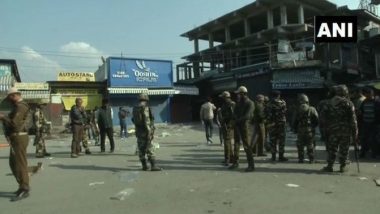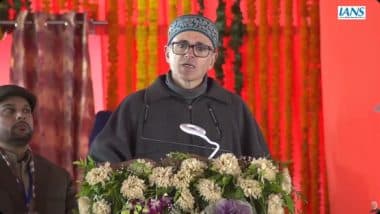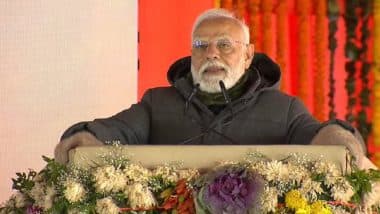New Delhi/Srinagar, April 5: Human Intelligence, a weapon used for busting terror groups in Jammu and Kashmir, has come in handy to trace people who concealed their travel history, besides in retracing the steps of coronavirus positive patients, in an operation that led to tracking of over 1,000 people who have since been quarantined in various parts of the union territory.
Fighting this new battle, officials said the authorities roped in the state intelligence machinery who were tasked to track, identify and bring such people to quarantine facilities. Click here to follow LIVE updates on Coronavirus Outbreak.
The intelligence personnel along with the regular police, which remain at the forefront in the fight against terror groups in the union territory, were now complementing the district administration in its efforts to ensure the success of the lockdown, besides tracking people who hid their travel history from the authorities.
According to a report submitted to the Centre, over 1,000 people who had either traveled out of the state or abroad were brought to quarantine centres between March 15 and 31 and their identification and verification was going on, the officials said.
Also, more than 28,000 people are under surveillance which included 10,600 who have been either quarantined at government facilities or in home-isolation, the officials said. There have been 92 positive cases so far in the union territory out of which two have died.
A total of 34 hotspots have been identified in Jammu and Kashmir which include: seven in Pulwama, five in Srinagar, and four each in Bandipora and Budgam; two in Shopian, one each in Ganderbal and Baramulla in Kashmir division; and five in Rajouri, four in Jammu and one in Udhampur district of Jammu division. COVID-19 Suspect Attempts Suicide in Delhi, Jumps From 3rd Floor of Jai Prakash Narayan Trauma Centre in AIIMS.
The process was intensified after the death of a COVID-19 positive Kashmiri businessman on March 26. The immediate need was to track people whom he had met since his arrival in Jammu from Delhi and Uttar Pradesh during which he had attended the Tablighi Jamaat function at Nizamuddin, the officials said.
Upon his arrival in the Union Territory, the businessman held a congregation at Samba in Jammu before returning to Sopore in North Kashmir where he participated in a religious function.
"We knew that it's a chain reaction. He would have met one and the chain continues. So it was necessary to immediately break the chain," said an official of the JK administration, spoking on condition of anonymity.
During all this, intelligence officials had to move in their resources of human intelligence to track people he had met and the result was that some coronavirus positive cases were located in parts of Jammu as well as Kashmir, the official said. The information shared by the intelligence also helped in tracking people who had travelled in trains and flight, the official said.
All field units were geared up to meet this new kind of challenge unlike an anti-terror operations where a militant was tracked and a crack team carried out an encounter, the official said. From early March, there were inputs that some people, who had gone on religious pilgrimages, started breaking their journeys upon their arrival in India and preferred to travel by train or road to various districts of Jammu and the valley, said an official on condition of anonymity.
An immediate plan was drawn up and passports issued to residents of Jammu and Kashmir were scanned through immigration office in the national capital and ascertain who all have traveled abroad and did not go for health check-up which had become mandatory by the middle of March, the officials said.
Police teams were fanned to homes of those who had traveled abroad and the persons were taken to quarantine centres, they said, adding at some places altercation took place while and others there was no resistance. COVID-19 Live Tracker: Map The Spread of Coronavirus in India.
The operation has also been able to identify and sent to quarantine as many as 139 people, who were either at Tablighi Jamaat headquarters at Nizamuddin in Delhi or had come in contact with its members who had traveled to Jammu and Kashmir.













 Quickly
Quickly





















